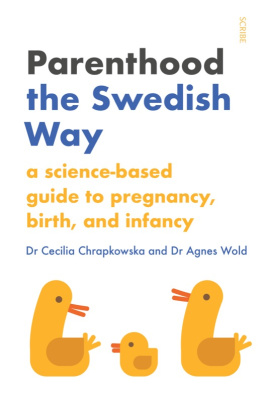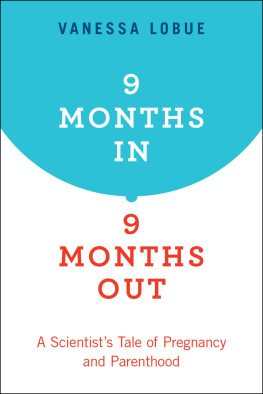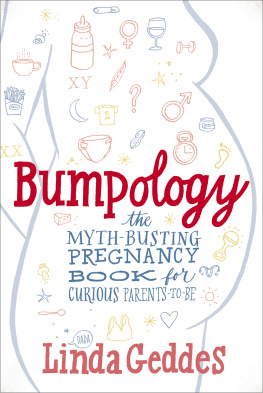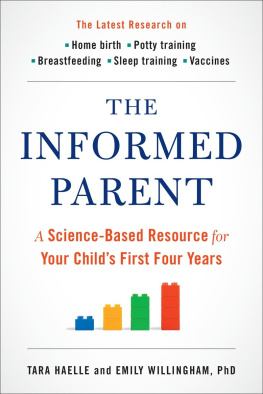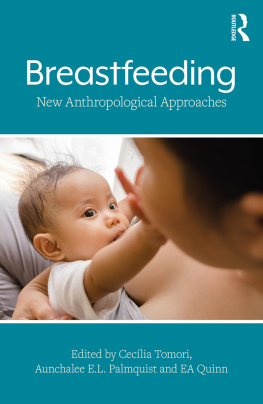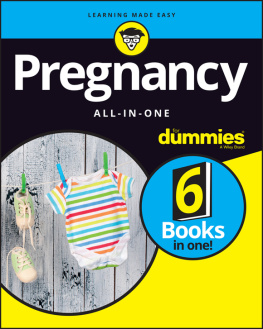
Parenthood the Swedish Way
Dr Cecilia Chrapkowska is a board-certified specialist in paediatrics. She works at Astrid Lindgrens Childrens Hospital at Karolinska University Hospital, Stockholm, and regularly appears as a child-health expert in national Swedish magazines and newspapers, and on radio and television.
Dr Agnes Wold, PhD, is a professor and senior consultant in bacteriology at the Sahlgrenska University Hospital in Gothenburg. She first became internationally renowned for her seminal paper published in Nature in 1997 on nepotism and sexism in peer-review practices, and has been a columnist for Swedens largest newspaper and for the political magazine Fokus .
Scribe Publications
1820 Edward St, Brunswick, Victoria 3056, Australia
2 John St, Clerkenwell, London, WC1N 2ES, United Kingdom
3754 Pleasant Ave, Suite 100, Minneapolis, Minnesota 55409, USA
First published in Swedish by Wahlstrom & Widstrand as Praktika for Blivande Foraldrar in 2017
First published in English by Scribe 2020
Published by agreement with Ahlander Agency
Copyright Cecilia Chrapkowska and Agnes Wold 2017
Translation copyright Stuart Tudball and Chris Wayment 2020
Illustrations copyright Emilie stergren 2017
All rights reserved. Without limiting the rights under copyright reserved above, no part of this publication may be reproduced, stored in or introduced into a retrieval system, or transmitted, in any form or by any means (electronic, mechanical, photocopying, recording or otherwise) without the prior written permission of the publishers of this book.
The advice provided in this book has been carefully considered and checked by the authors. It should not, however, be regarded as a substitute for individual medical advice. Neither the authors or their representatives nor the publisher shall bear any liability whatsoever for personal injury, property damage, and financial losses.
9781925713916 (Australian edition)
9781911617938 (UK edition)
9781947534834 (US edition)
9781925693621 (ebook)
Catalogue records for this book are available from the National Library of Australia and the British Library
scribepublications.com.au
scribepublications.co.uk
scribepublications.com
To all parents who do their best to raise the next generation of humanity.
Contents
CHAPTER ONE
CHAPTER TWO
CHAPTER THREE
CHAPTER FOUR
CHAPTER FIVE
CHAPTER SIX
CHAPTER SEVEN
CHAPTER EIGHT
CHAPTER NINE
CHAPTER TEN
CHAPTER ELEVEN
CHAPTER TWELVE
CHAPTER THIRTEEN
Preface
It was Agness daughter Sigrid who prompted us to write this book. Shed had her first baby, and of course she had all sorts of questions, some easy to answer and others more complex. What would I do if I didnt have a mother who was a doctor? she asked, with some indignation. Most people dont have that luxury. Its really unfair. Well, yes. It is unfair. And, if you choose to be a bit provocative, you could also say that its a problem about democracy. Wed like to believe that our society, which is often referred to as an information society, gives reliable information to all those who need it. But thats not always the case.
As expectant and new parents, you will be overwhelmed with advice about pregnancy and parenting, whether you ask for it or not. Friends, bloggers, authorities, grandparents-to-be, and self-appointed experts will want to help you be the right kind of parent. And youll listen, because when you are a new parent, or are about to become one, there is nothing you want more than to do the right thing. And, of course, the manufacturers of all the baby paraphernalia know this, too, and theyll be sending a sea of advertisements your way once the search engines have detected that youve looked up groin pain + pregnancy signs? or best cures for morning sickness.
And it wont be long before you realise that its difficult to make use of the information, because a lot of the advice is contradictory. One day, youll read how vital it is to carry your baby in an anatomically correct baby carrier, and the next youll be told that the same carrier can damage your babys spine and that you should use a soft sling instead. One day, youll be told breastfeeding is the only way to go and never to use a dummy. Then one friend will tell you how bottle-feeding saved his relationship, and another will recount how a dummy got her baby to sleep for at least a few hours a night. Youll read that your baby must have a totally salt-free diet, and then hear that babies need a certain amount of salt. If you dont have friends or relatives who are experts on the human body and child development, you can soon feel way out of your depth.
Between us, we have eight children and four grandchildren, so we understand how alone and afraid you can feel when faced with the responsibility for a newborn baby. But we are also medical doctors and researchers. Cecilia is a board-certified specialist in paediatric medicine and is studying for a PhD in vaccination research, while Agnes is a specialist in clinical bacteriology and immunology and a professor of clinical bacteriology. As doctors, we are trained to understand how the body works, and as researchers we are trained to read, summarise, and sometimes challenge scientific articles. Over many years, both singly and together, we have focused on picking apart advice on pregnancy and parenting and we have debunked a number of myths such as the idea that drinking wine during breastfeeding will harm your baby, or that cleaning your home will help prevent allergies.
The aim of this book is to pass on this knowledge to you. Over the course of writing Parenthood the Swedish Way , we have read several hundred additional scientific papers and discovered many fresh myths that we tackle head on. We are women of science, so we put facts first. Where there is solid research in a field, we present the results of that work. If there is a lack of reliable research (which happens more often than you might think), we say so. The sources for each chapter are listed at the end of the book.
Importantly, as feminists we advocate for parents to equally share both the responsibility for and the practical care of their child. We believe that this sharing gives both parents the chance to establish a healthy, lifelong relationship with their child and to preserve their own relationship in the face of the inevitable stresses of parenthood. As well, a fair division of parenting gives each parent the chance to achieve financial independence and a liveable income into the future.
For the most part, there will be two parents expecting a baby, so we address both parents in describing what we think you need to work out together before your baby is born. If youre expecting a baby on your own, feel free to skip over the sections of the next chapter that dont apply to you and go straight to the section on The life jigsaw puzzle: from many pieces to two. If, as may be the case, there are more than two of you planning a child together, its perhaps even more important to reach early agreement on how youll work together to look after the baby. In this instance, change our use of both and half to fit your situation.
In chapter 1, we look at the important things to consider together before your baby is born especially decisions about how work and childcare will be divided between you. The way we see it, todays unequal distribution of parenting creates major social problems, and we are convinced that shared parenting is a good way of dealing with these problems. In chapter 2, we examine the fundamentals of pregnancy and prenatal care, and discuss common complications you need to be aware of. We also discuss prenatal screening and diagnoses, and some infections that can affect a foetus during pregnancy. In chapter 3, we present our scientific review of the advice most commonly given to pregnant women. Let us say from the outset that while some advice is undoubtedly important, not all of it stands up to close scrutiny. Chapter 4 focuses on the actual birth and the stages of labour. Chapter 5 looks at the feeding of a newborn baby and considers both breastfeeding and bottle-feeding options. We discuss how you choose which feeding method to use, and what you need to do to get the feeding to work. And we discredit many myths about breastfeeding and bottle-feeding. In chapter 6, we explain how to wean your baby, when it is appropriate to begin solids, and with what foods. Chapter 7 looks at babies sleep, with a review of various sleeping methods currently advocated. Chapter 8 provides a guide to baby poo, vomiting, crying, and colic information about whats normal and whats not as well as a science-based approach to colic treatments.
Next page
